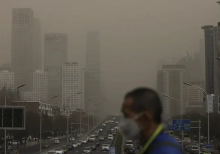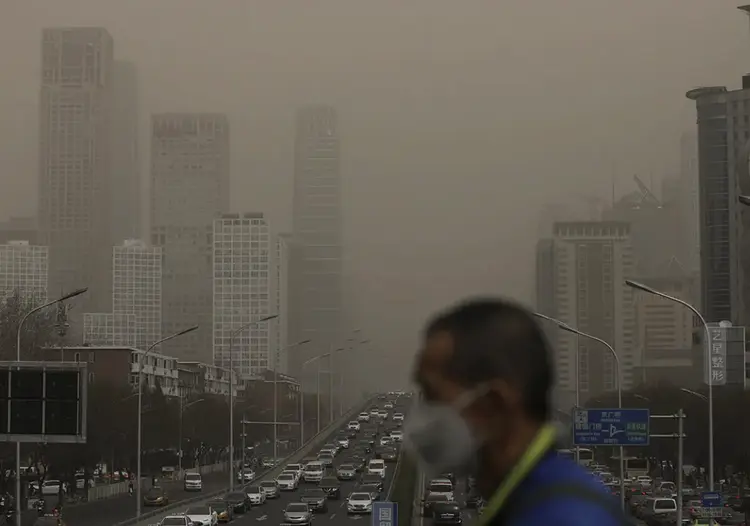This week on Portsmouth Point: China's Clear Air Efforts

By William PW, Year 10
In the early 2000’s, China had extremely poor air quality as a result of rapid industrialization, leading to public outcry in the run-up to 2008 Beijing Olympics. In response, Chinese authorities fitted scrubbers to coal power plants to curb the dirtiest emissions and they tightened rules governing vehicle exhaust leading to a 75% drop in sulphate emissions, which is a main precipitate causing poor air quality. However, this success story comes with a darker side. According to a new analysis, China's dirty air had been cooling the planet due to the fact that the particles reflect sunlight back into space, shielding Earth from solar radiation. Furthermore the pollution changed the way which clouds formed, increasing the occurrence of whiter, longer-lived clouds that also reflect radiation.
This effect is similar to that of Canada’s Record breaking Wildfire season in 2023. A massive 15 million hectares of forest was burnt, producing smoke clouds which covered the span of the entire of North America, and the western parts of Europe. Despite the 640 million Metric tons of carbon dioxide which was released from these wildfires, and the fact that many areas on the west coast experience their hottest temperatures on record, many cities in the east actually experienced some of their coolest temperatures due to the cooling effect of the massive smoke cloud. The cooling effect was so great that it decreased global temperatures by about 0.6 degrees, ensuring that 2023 did not surpass the 1.5 degree warming limit, set out in the Paris climate summit.
Going back to China, the extent of warming from cleaning up the air pollution in some of their biggest cities could actually increase global temperatures by 0.05 degree per decade. In total China's air pollution Crackdown is responsible for 80% of the increase rate in global warming seen since 2010.
However this is a double-edged sword. It's important to note that China's action hasn't caused any additional warming. Instead, it has unmasked warming that was previously masked by pollution.
In conclusion, despite the impact on global temperatures, the action was worth taking to save lives. It is estimated that the measures have helped avoid 150,000 premature deaths per year.


















.png&command_2=resize&height_2=85)



